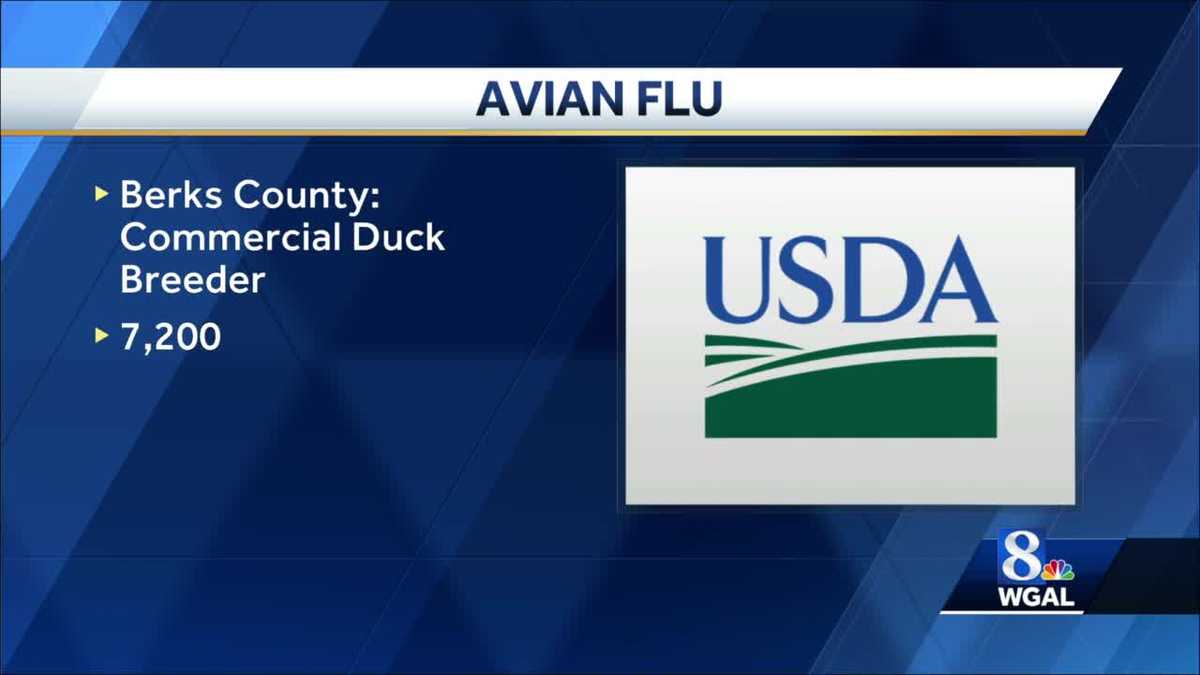NEWS 8. DANIELLE: ANOTHER FLOCK IN PENNSYLVANIA HAS TESTED POSITIVE FOR THE AVIAN FLU. THE LATEST FLOCK IS A COMMERALCI DUCK BREEDER IN BERKS COUNTY. 7200 BIRDS AREFF AECTED. AVIAN FLU HAS HIT 15 FLOCKS IN PENNSYLVANIAO SFAR. SEVEN IN BERKS C
Avian flu update in Berks County
Another flock in Pennsylvania has tested positive for the avian flu. The flock is a commercial duck breeder in Berks County. A total of 72,000 birds have been affected in this latest case. Avian flu has impacted 15 flocks in Pennsylvania, including seven in Berks County and eight in Lancaster County. Report avian flu casesIf you suspect live poultry is infected, you are asked to report it to the Pennsylvania Bureau of Animal Health and Diagnostic Service at 717-772-2852. That number is available 24 hours a day, seven days a week.Symptoms of avian flu in poultry include a lack of energy and appetite.Avian flu riskThere is no risk to the public, and poultry and eggs are safe to eat if cooked properly.But HPAI is highly infectious and can be fatal to domestic birds (chickens, ducks, geese, quail, pheasants, guinea fowl and turkeys).According to the U.S. Centers for Disease Control and Prevention, avian influenza detections do not present an immediate public health concern.
Another flock in Pennsylvania has tested positive for the avian flu.
The flock is a commercial duck breeder in Berks County.
A total of 72,000 birds have been affected in this latest case.
Avian flu has impacted 15 flocks in Pennsylvania, including seven in Berks County and eight in Lancaster County.
Report avian flu cases
If you suspect live poultry is infected, you are asked to report it to the Pennsylvania Bureau of Animal Health and Diagnostic Service at 717-772-2852. That number is available 24 hours a day, seven days a week.
Symptoms of avian flu in poultry include a lack of energy and appetite.
Avian flu risk
There is no risk to the public, and poultry and eggs are safe to eat if cooked properly.
But HPAI is highly infectious and can be fatal to domestic birds (chickens, ducks, geese, quail, pheasants, guinea fowl and turkeys).
According to the U.S. Centers for Disease Control and Prevention, avian influenza detections do not present an immediate public health concern.















